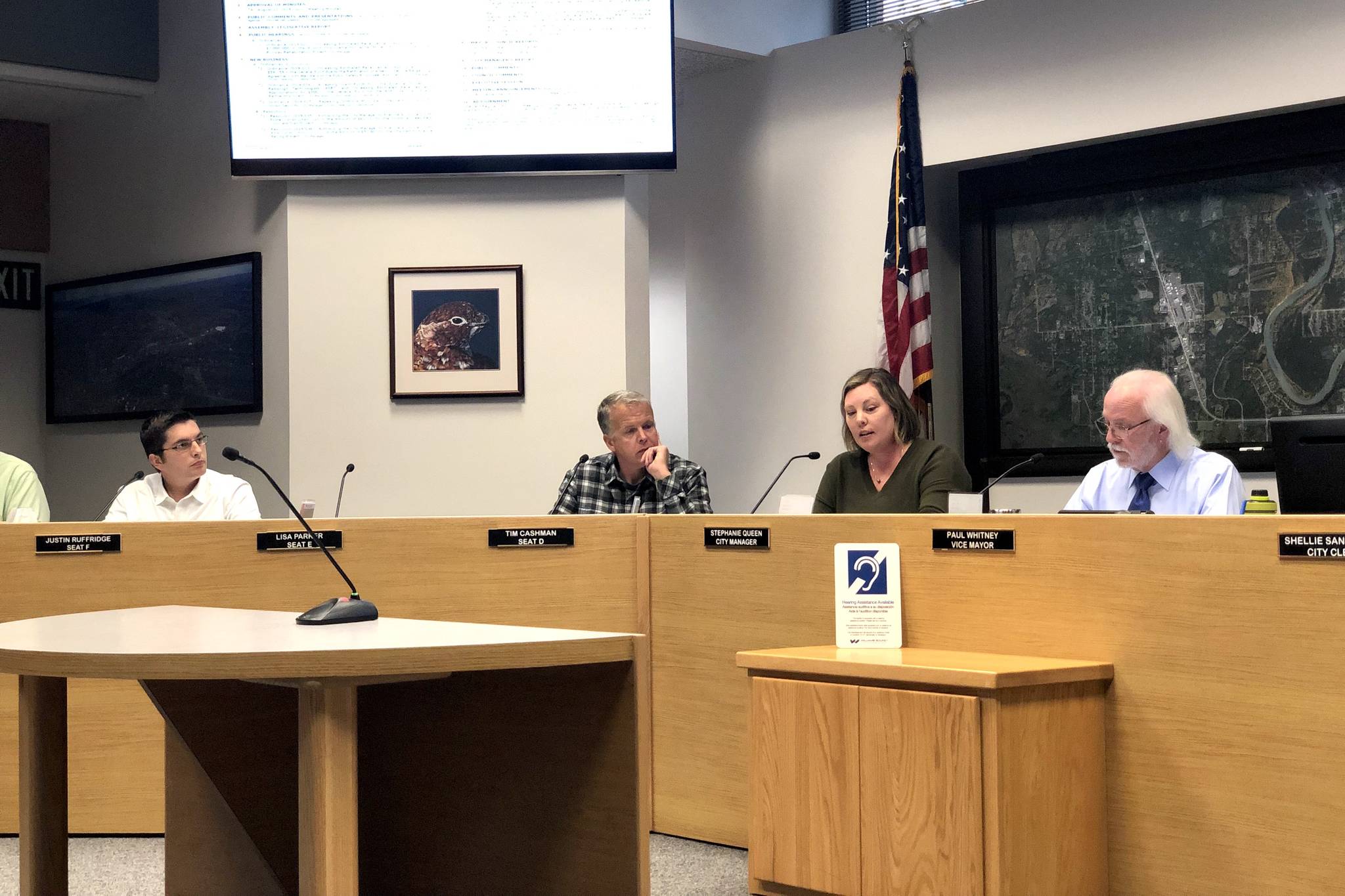The City of Soldotna postponed its efforts to annex about 4 square miles of land near its boundaries.
The Soldotna City Council voted unanimously Thursday night to postpone a resolution to submit their annexation petition to the Local Boundary Commission, the state entity created through the Alaska Constitution that grants authority to create and alter municipalities and their boundaries.
City Manager Stephanie Queen said several possible amendments to the petition were brought to the administration, and more time would be needed to implement any potential amendments. The resolution was also postponed to allow for a full council to vote, since council member Lisa Parker was absent from Thursday’s meeting.
“I know there’s a lot of emotion in here, but we’re listening,” council member Tim Cashman told the audience.
In June 2018, the Soldotna City Council passed a resolution to start drafting a petition to annex seven areas adjacent to the city limits.
Tyson Cox, a Soldotna City Council member who also owns property in an area slated for annexation, did not participate in Thursday’s council vote due to a conflict of interest.
In the petition, the city said it’s hoping to annex nearby areas as a way to respond to growth and development and to more accurately align the city’s corporate boundaries with the community that has developed since the city’s incorporation in 1960.
Through annexation, Soldotna will have the opportunity to glean millions in tax revenue from additional businesses and residents.
Soldotna said annexation could benefit residents by giving them a voice in city government and lowering property tax rates. Residents in Soldotna pay 8.06 mills, or 0.9 mills less than the tax rate paid by borough residents (8.96 mills) within the territory proposed for annexation, according to the petition.
Residents being annexed would also have access to city services, including parks and recreation, a library, animal control, water and waste water utilities, comprehensive zoning, economic development incentives, local police protection and building code review and inspections for commercial and residential construction.
Residents in the territory have said they would like to vote on the matter. State law allows municipalities to expand their boundaries through the legislative review process or through voter approval. The legislative process requires municipalities to send a petition to the Local Boundary Commission, and from there the Local Boundary Commission may present proposed changes to the Legislature during the first 10 days of any regular session. Unless the recommendation is denied, any changes will be approved 45 days after the initial presentation or at the end of the session, whichever comes first.

